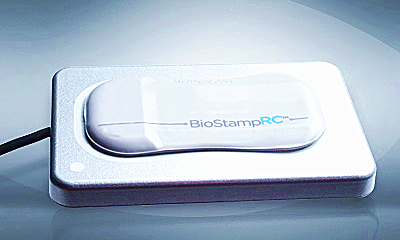MC10 and Shirley Ryan AbilityLab to clinically study BioStampRC System
August 16, 2017
Source: massdevice
 952
952

New treatments for neurodegenerative disease and motion disability will be developed by a research collaboration between digital healthcare solutions provider MC10 and US-based rehabilitation research hospital, Shirley Ryan AbilityLab.
The collaboration will see Shirley Ryan AbilityLab perform clinical research studies of MC10’s wearable sensor system BioStampRC to determine its use in clinical and home settings for enhanced rehabilitation process.
BioStampRC is developed to capture physiological data from across the body and features a flexible technology called BioStamp Sensor that easily adapts to the human body.
“We look forward to developing new therapies and solutions with BioStampRC sensors, furthering our goal of improving treatment and recovery, and of advancing human ability.”
The sensor can also be used during activities such as exercise and sleep and can be integrated into the researcher workflow using mobile and web applications.
Shirley Ryan AbilityLab innovation and clinical research executive director David Zembower said: “MC10’s technology has the potential to reshape rehabilitation.
“We look forward to developing new therapies and solutions with BioStampRC sensors, furthering our goal of improving treatment and recovery, and of advancing human ability.”
The companies intend to work towards addressing unmet clinical and therapeutic needs in the field of physical medicine and rehabilitation.
They will initially target different neurodegenerative diseases, injuries that cause motion/biomechanics-related disabilities such as stroke, traumatic brain injury and incomplete spinal cord injury.
MC10 CEO Scott Pomerantz said: “By collaborating with the Shirley Ryan AbilityLab, an institution committed to driving breakthroughs in human ability, we’re positioning our technology to make a real, positive impact on human health.”
The firm combines its ultra-thin, flexible body-worn sensors with advanced analytics for obtaining better health insights through physiological data.
By DduRead more on
- Things to Know before Buying Newborn Baby Incubators March 31, 2022
- Highly Resistant Food Poisoning Bug Responds to Antibiotics September 6, 2018
- Smartphone Based Diagnosis to Identify Mosquitoes Transmitting Infection September 5, 2018
- 3 Natural Plant Extracts Manufacturers on Drugdu.com September 4, 2018
- Shenzhen Chuanggan – Health Assessment Facility Supplier September 4, 2018
your submission has already been received.
OK
Subscribe
Please enter a valid Email address!
Submit
The most relevant industry news & insight will be sent to you every two weeks.



